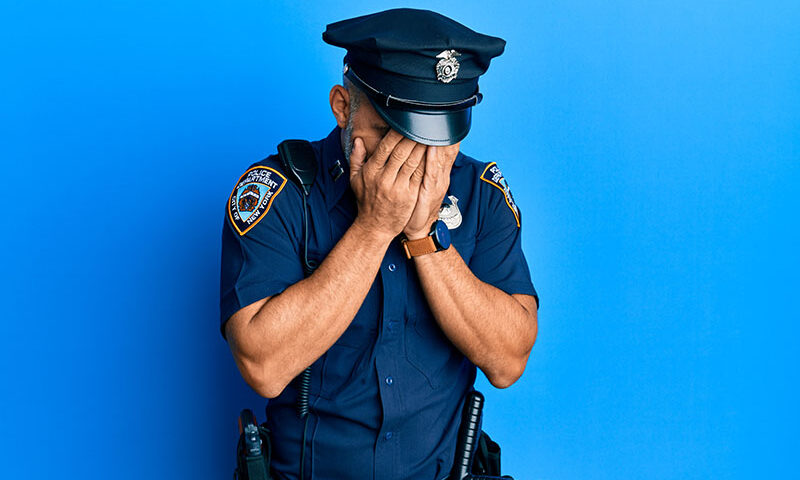The job of a law enforcement officer is one of the most mentally taxing professions out there. Consistent exposure to traumatic events like abuse, suicide, and violence can take an insurmountable toll on those who provide their services to the general public. As statistics continue to rise, more consideration needs to be given to police officer mental health and how it affects not only police departments but entire communities as well. Banyan Treatment Center Boca Raton, FL, explains more below.
Law Enforcement Mental Health Statistics
The numbers regarding the mental health of police officers are staggering. Nearly 1 in every 4 officers report having had thoughts of suicide in their life. The suicide rate is also four times higher than that of firefighters. Even in the smallest of departments, the rate of suicide for officers passes the national average by almost 400%.1
An even more shocking fact is that more deaths of police officers are the result of suicide rather than violence in the line of duty. Additionally, there are much higher rates of these law enforcement officers suffering from conditions like PTSD, addiction, depression, and other anxiety-related mental health disorders than in the general population.1
How the Police and Mental Health are Related
As stated before, law enforcement officers handle a much greater amount of stress than the average citizen. They face a significant amount of stigma, while the job itself is rife with traumatic scenarios. These scenarios can include domestic abuse, trafficking, suicide, and shootings involving their peers. These experiences would have a devastating effect on anyone, but police officer mental health continues to be affected for several reasons, such as a lack of willingness to get help.
The reasons some officers fail to obtain mental health help can include:
- Uncertainty regarding confidentiality, with fear pertaining to the idea that someone who seeks mental health care is not fit to serve in law enforcement.
- The inability of these officers to recognize that they are suffering from a mental health condition.
- A false belief that therapists and other mental health professionals are incapable of relating to those who work in the criminal justice system.
What is important to consider is the fact that this stigma does not result in anything good. Aside from the high rates of suicide and associated ideations, it is understandable that a person struggling with mental illness may find it difficult to perform at work. For someone working a job as important as law enforcement and public safety, this can have grave consequences for the officer and the communities they serve.
An officer may be required to fulfill several important duties, such as disaster or emergency preparation, the enforcement of local and state laws, giving testimonies in court, and acting as an investigator in criminal cases. Struggling with symptoms of anxiety, depression, PTSD, or other mental health conditions can make it that much harder to perform these duties adequately.
This is why Banyan Boca mental health works to provide programming to address a number of conditions that current and former officers may be dealing with. Patients can participate in a number of unique therapy sessions, allowing for comprehensive healing to take place.
If you or someone you love needs effective Florida mental health services, call Banyan Boca Raton at 888-280-4763 today and learn how you can begin the healing process.
Source:
- NAMI - Law Enforcement
Related Reading









